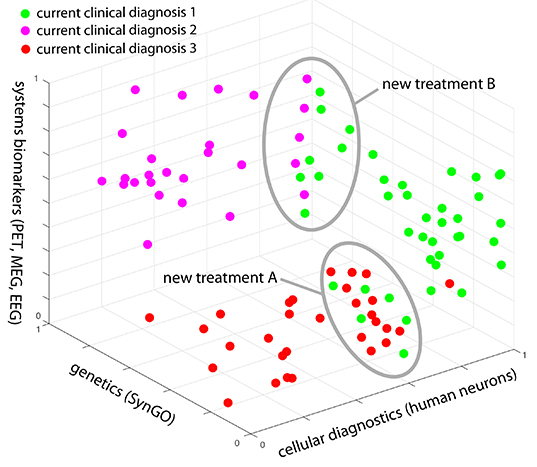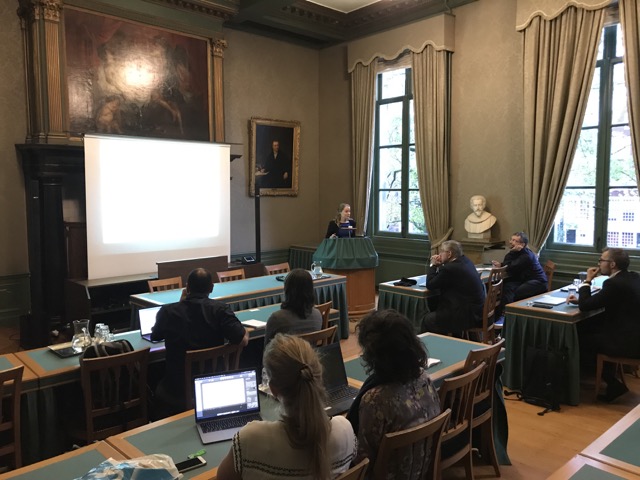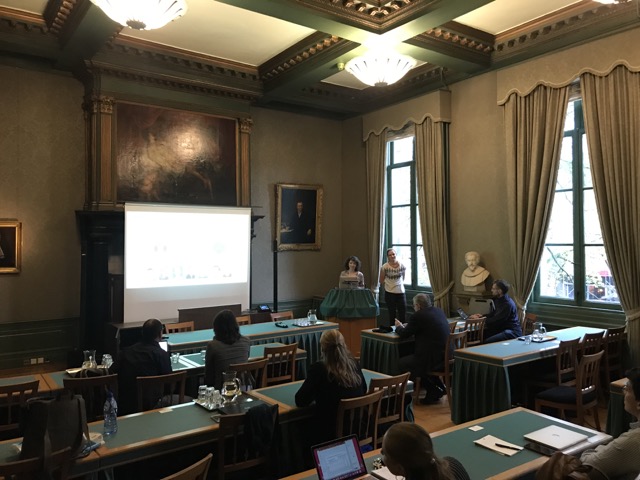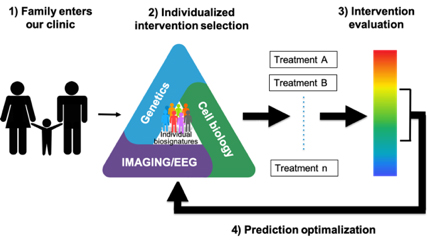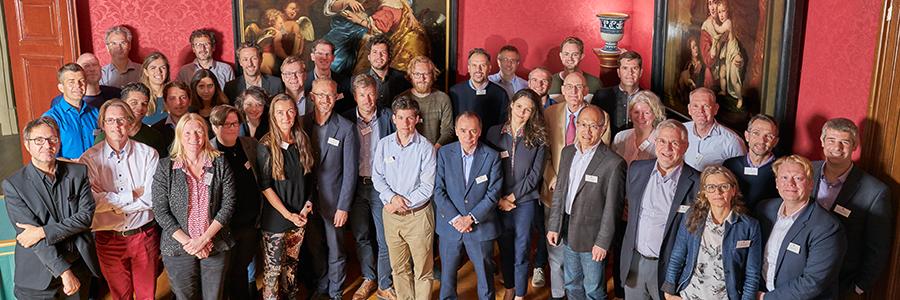
CNCR organized, together with new UMCA professor Hilgo Bruining, a colloquium at the Royal Academy bringing together world leaders to discuss neurodevelopmental disorders and science-based intervention for individual patients.
The colloquium entitled “A new beginning for neurodevelopmental disorders: science-based intervention for individual patients” addresses the urgent challenge that current clinical concepts in neurodevelopmental disorders are in dire need of refinement to come to effective more personal treatments. In addition, appropriate and quantitative ‘endpoints’ are lacking to assess treatment efficacy. Without adequate patient selection and the use of valid endpoints, new treatments have little chance of success. The colloquium focussed on implementing genetic, physiological and cell biological knowledge to overcome current trial-and-error practice. The meeting focused on approaches that enable stratification, taxonomy revision, novel treatments (including drug repositioning) and treatment decision support systems. CNCR director Matthijs Verhage organized and chaired the colloquium together with Hilgo Bruining; CNCR director Danielle Posthuma and chairman Guus Smit gave plenary lectures. CNCR team leaders Niels Cornelisse and Klaus Linkenkaer-Hansen also gave talks. Some of the main speakers were Steve Hyman, Director of the Stanley Center for Psychiatric Research of MIT and Harvard, past Director of the National Institute of Mental Health and past-President of the Society for Neuroscience; Patrick Sullivan, founder of the worldwide psychiatric genetics consortium and director of institutes at UNC, (NC, USA) and Karolinska Institutet (Sweden); Thomas Bourgeron, who discovered some of the first synaptic genes in autism; and Kevin Eggan, Harvard University professor of Stem Cell and Regenerative Biology and stem cell pioneer. Representatives of patient organizations (Simons Foundation) and industry (Roche, Stalicla) also participated.
Treatments for neurodevelopment disorders are emerging based on mechanistic insights from experimental studies, but their successful application is hampered by the current diagnostic system. Integration of recent insights from genetics, cell diagnostics and systems analyses (PET, MEG, EEG) enables new patient stratification according to these science-based criteria. This offers a new beginning for rational therapy design and -selection and the quantitative evaluation of therapy success.
Graph is not based on real data. SynGO (www.syngoportal.org) is an example of evidence-based, expert-curated gene annotation, in this case for synapses.
As part of the Royal Academy format the 3d day was devoted to a masterclass for 6 PhD students or -teams from Dutch medical centers who are working on projects on neurodevelopmental disorders. Two CNCR teams, Hanna Lammertse & Annemiek van Berkel and Ricarda Weiland & Maaike van Boven, presented their work for Steve Hyman and Patrick Sullivan and engaged in a lively discussion.
Hanna Lammertse presenting during the masterclass
Ricarda Weiland and Maaike van Boven presenting during the masterclass
Future clinics might no longer treat diagnoses but tailor novel and existing (off-label) treatments in a continuous iteration of n-of-1 trials in which patients serve as their own controls. Moreover, aggregation of multiple N-of-1 trials can be used to evaluate treatment efficacy in the future. Such an approach has not yet been explicitly compared with a randomized clinical trial.
